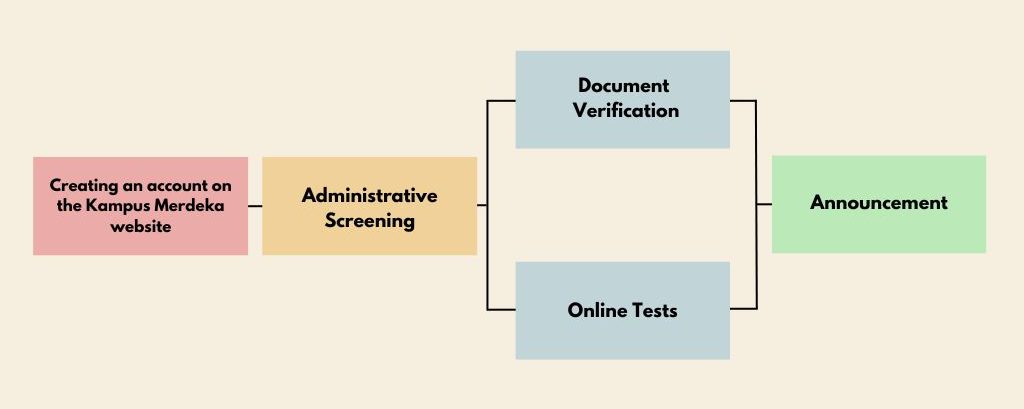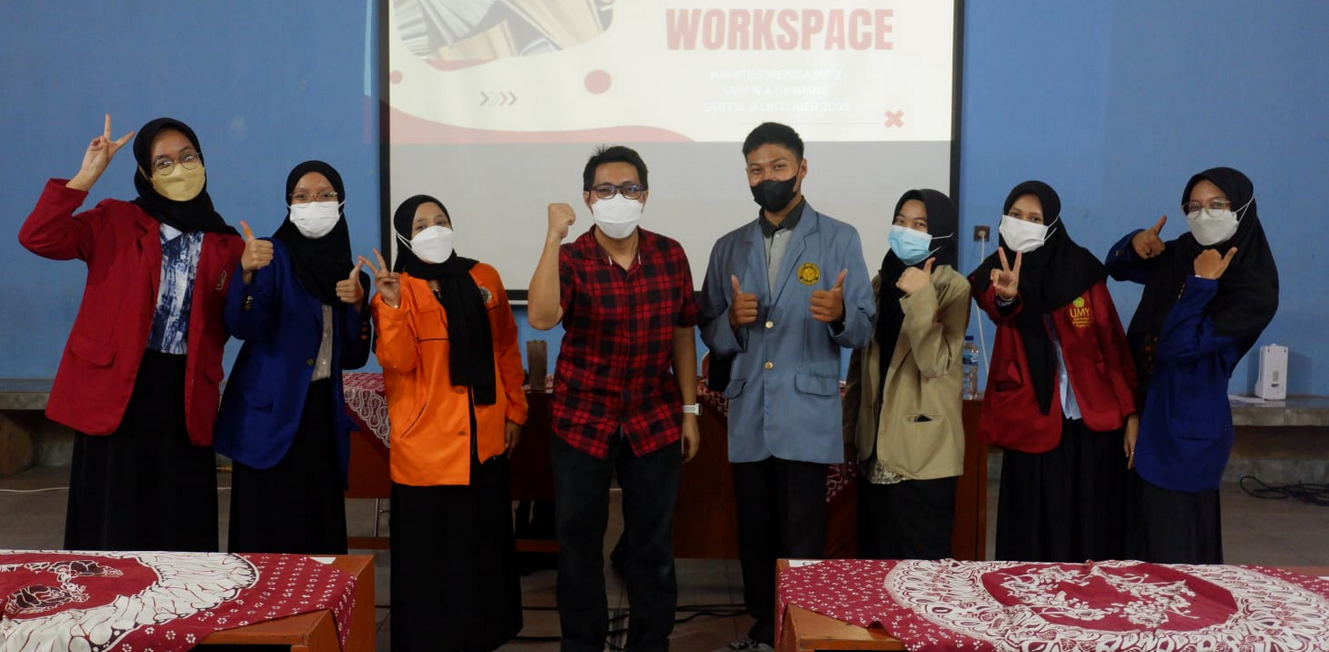What is Kampus Mengajar?
Kampus Mengajar is a program that provides undergraduate students the opportunity to assist teachers and principals at the elementary and junior high schools for one semester. This initiative aims to support learning activities affected by the pandemic. Through this program, the volunteers can apply their knowledge, contribute their skills, and inspire elementary and junior high school students to broaden perspectives and future aspirations.
Why Should You Join Kampus Mengajar?
By participating in Kampus Mengajar, you will:
- Directly engage in literacy and numeracy learning activities, while incorporating latest technology into the teaching process at elementary and junior high school levels.
- Enhance leadership, creativity, problem-solving, and innovation skills through real-world experience.
- Receive living expenses and tuition fee aid (for those not receiving other government funding).
Requirements, Roles, and Activity Outcomes
Requirements
You are the perfect candidate for Kampus Mengajar if you:
- are an active undergraduate or vocational student from public or private higher education institutions (PTN/PTS) under the Directorate General of Higher Education, Ministry of Education, Culture, Research, and Technology;
- are at least in their 4th semester;
- have minimum GPA of 3.0 on a 4.0 scale;
- are enrolled in an accredited higher education institution;
- are from a study program with at least a “B” accreditation rating;
- have achievements, teaching experience, and/or organizational experience (as additional evaluation points).
- possess a recommendation letter from the study program, approved by the head of the institution (Faculty/College/Institute/University);
- have not previously been accepted in Kampus Mengajar Perintis, or Kampus Mengajar Batch 1 & 2.
Roles
As a Kampus Mengajar volunteer, you are responsible to:
- assist teachers in face-to-face and remote learning, especially in literacy and numeracy subjects;
- support technology adaptation in both online and offline learning processes;
- aid school principals in administrative and managerial tasks;
- promote learning products of Ministry of Education, Culture, Research, and Technology (emergency curriculum, learning modules, AKSI, Portal Rumah Belajar, etc.);
- socialize and improve promotional materials related to the Profil Pelajar Pancasila;
- Act as educational ambassadors for behavioral adaptations during the pandemic.
Activity Outcomes
After completing this program, you will be able to:
- internalize empathy and sensitivity toward societal issues;
- cultivate tolerance in problem-solving collaborations;
- develop ethical communication, collaboration, and social interaction skills;
- solve complex education-related problems;
- analyze school learning challenges using critical thinking approaches;
- build leadership, soft skills, and character by collaborating with teachers to improve learning quality;
- collaborate with peers from other disciplines and build critical thinking;
- create multimedia-based digital learning videos and modules;
- produce materials to support teaching and learning activities;
- train academic civitas in schools through the development of human, digital, and technological literacy;
- develop independent, high-quality, and steady work ethics;
- make informed decisions to solve problems in various field based on information and data analysis.
Selection
Process
The selection process for Kampus Mengajar includes:
- Administrative screening;
- Document verification;
- Teaching experience evaluation;
- Online tests (Literacy and Numeracy tests, Diversity Survey, and Value Clarification Test).

Criteria
The selection criteria for Kampus Mengajar include:
- passing the administrative selection;
- passing the diversity survey;
- participant’s achievements;
- participant’s record of organizational experience;
- participant’s teaching experience;
- demands of volunteers in target schools.


